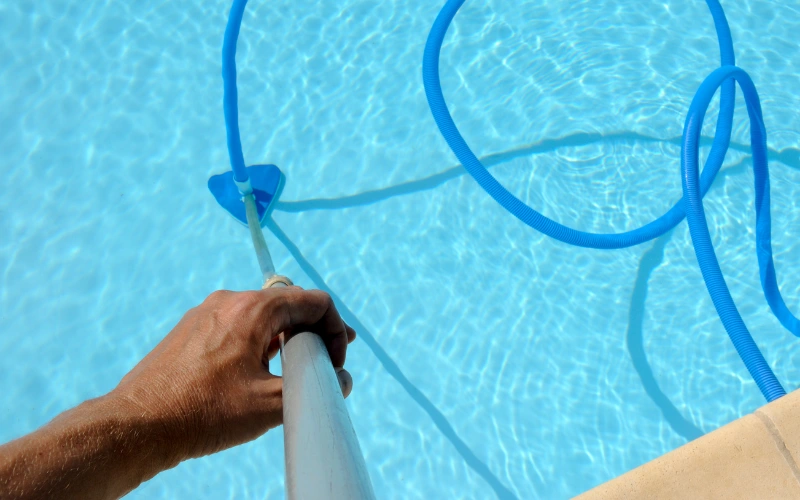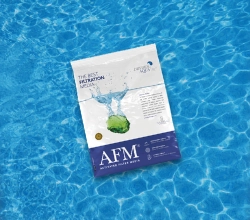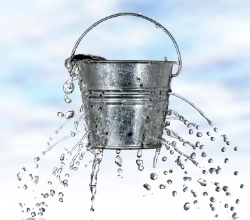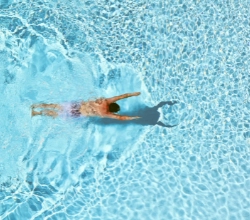Scale build-up is the unwanted formation of calcium, which is found in almost every source of water. Initial signs of scale in your swimming pool can be a white film developing around the water line or patches of white on the walls. New scale formation will usually brush off easily with your hand, while older deposits will be more difficult to remove.
Swimming Pool Scale Prevention
If neglected, scale formation can really damage your swimming pool.
The deposits you can see on the pool are only one part of the equation. The problem is the scale you can’t see in the pipes. Once a pipe is full of scale, circulation is obstructed. This means that your chemicals won’t be circulating properly, increasing your chances of bacteria and algae growth. Think of it like cholesterol clogging arteries. Calcium can obstruct pipework, causing pressure build-up which will eventually blow up your pump or break your pipes.
So, to make sure you aren’t spending your summer removing scale, follow these simple preventative methods:
Test regularly, to ensure calcium hardness levels are between 175-275ppm
Deposits begin to form when calcium levels are too high. Because deposits form faster when your pH is high, you want to maintain proper pH balance and alkalinity. Heat also plays a factor in the rate of scaling. The higher the heat, the faster scaling occurs. There’s nothing to be done about the heat though as we all like a nice warm swimming pool!
You can also manage calcium levels by adding a scale prevention product like BioGuard Scale Inhibitor or Salt Pool Stain and Scale Control. These products help the water to hold more calcium in solution and prevent it from precipitating out and forming scale.
Scrub Pool Walls As Part Of Your Maintenance
People often leave this step out. Don’t. Brushing the pool walls is a crucial step in preventing scale deposits.

Invest In A Pool Cover
When the water is warm, the pool will lose some water from evaporation. Evaporation of water results in an increase in concentration of calcium. Using a pool cover will reduce evaporation and slow down scale formation. To find out which cover is best for your pool and when to use click here.
Salt Pools Require Special Attention
Salt pools generate chlorine in the salt cell/electrode of the salt chlorinator. The cell is a common place for scale to form. When scale forms on the plates of the salt cell, it reduces the amount of chlorine able to be produced. Eventually if left unchecked the cell will not produce any chlorine resulting in a green pool. Maintaining correct water balance will reduce the rate at which scale builds-up on the salt cell. Clean your salt cell if scale develops.
Make sure it all balances out in the future
If scale build-up becomes a problem, come and see us to discuss the best way to deal with it. Water balance has a much bigger effect on scaling than calcium levels on their own.
Don’t let unsightly scale deposits detract from your pool’s beauty and avoid the costs of clogged pipes and a broken pump.

















